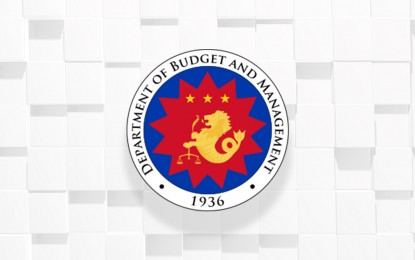
MANILA – The Department of Budget and Management (DBM) on Friday pledged to provide budgetary support for the successful implementation of the Philippine Development Plan (PDP) 2023-2028.
Budget Secretary Amenah Pangandaman made the vow as she emphasized the crucial role of the PDP 2023-2028 in achieving President Ferdinand R. Marcos Jr.’s bid for economic transformation.
Expressing full support for the implementation of the PDP 2023-2028, Pangandaman said her office would carry out budgetary reforms and transformational initiatives within the bureaucracy.
"The PDP is anchored on the 'AmBisyon Natin 2040,' the 2030 Agenda for Sustainable Development, and the President's Eight-Point Socioeconomic Agenda. The Plan is also aligned with the fulfillment of commitments under the 2022-2028 Medium-Term Fiscal Framework, which seeks to bring the economy back to a high-growth trajectory and fiscal consolidation," she said.
“The DBM will strive to implement and practice good governance and improve bureaucratic efficiency as our contribution to the full implementation of the Philippine Development Plan.”
The National Economic and Development Authority (NEDA) Board, chaired by Marcos, approved the PDP 2023-2028 on Dec. 16, 2022 after a series of Cabinet-level and technical inter-agency discussions and stakeholder consultations.
On Jan. 27, the President signed Executive Order (EO) 14, approving and adopting the PDP 2023-2028, which serves as the government’s economic recovery roadmap.
Under EO 14, the plan contains actionable policies and programs, as well as legislative priorities that will enable the country to reach its desired development outcomes.
The PDP 2023-2028, Pangandaman said, would help the current administration transform the Philippines into a “prosperous, inclusive, and resilient” nation.
“With President Marcos Jr. at the helm and with our Agenda for Prosperity on track, I am confident that a prosperous, inclusive, and resilient society, which we all aspire, is highly attainable. Rest assured that the DBM will continue to provide necessary budgetary support leading to the successful implementation of the PDP,” she said.
EO 14 directs all national government agencies, government-owned or -controlled corporations (GOCCs), government financial institutions (GFIs), other national government offices and instrumentalities, government corporate entities (GCEs), state universities and colleges (SUCs), and local government units (LGUs) to adopt and disseminate the PDP 2023-2028.
They are also directed to align their budgetary and department or corporate programs with the strategies and activities identified in the PDP 2023-2028.
The formulation of the development plan must be completed by the first quarter of 2023 and updated annually or when deemed necessary by the NEDA, according to the EO.
The DBM is also directed to provide the necessary budgetary support for the implementation, monitoring, assessment, and implementation of the PDP and Public Investment Program 2023-2028.
Appropriations for its continued implementation must be prepared under regular government budget procedures and must be included in the budget of concerned departments, agencies, and instrumentalities of the national government under the annual General Appropriations Act.
Support thru peace and order efforts
The Department of the Interior and Local Government (DILG) also pledged support to the PDP and underscored the importance of peace and order in achieving economic growth.
DILG Assistant Secretary Billy Racho, in a Laging Handa briefing Thursday, said they continue to work with other government agencies to ensure that the goals set in the PDP are met.
"We are guided by the Philippine Development Plan in our initiatives. Also, we have a year-on-year timeline. We also do assessments every year, not only up to 2025 or 2028 and we review them. We want to uplift the standards in everything that we accomplish," he said in mixed English and Filipino.
Racho also cited the agency's aggressive peace and order initiatives continue to gain support from various sectors.
He said the country’s anti-illegal drug campaign is now a concerted effort between the public and the government.
"Before, only the police and the government are working to solve this drug problem. Now, you see that the DILG is also holding caravans joined by socio-civic sectors especially on raising awareness on the drug problem," he added.
The DILG, he said, is also pouring more manpower and resources on areas where the insurgency threat is still rampant.
"As you can see, encounters in the hinterlands are now rare. We see that more rebels are now returning to the fold of the law. It doesn't end there. The DILG and other agencies assist them through livelihood programs, granting scholarships to their children, among other efforts," he added.
He also said individuals who were hooked on illegal drugs were not simply put in ordinary rehabilitation centers until they graduate but were also given spiritual and other forms of support until they fully recover and return as productive members of society. (with Christopher Lloyd Caliwan/PNA)
